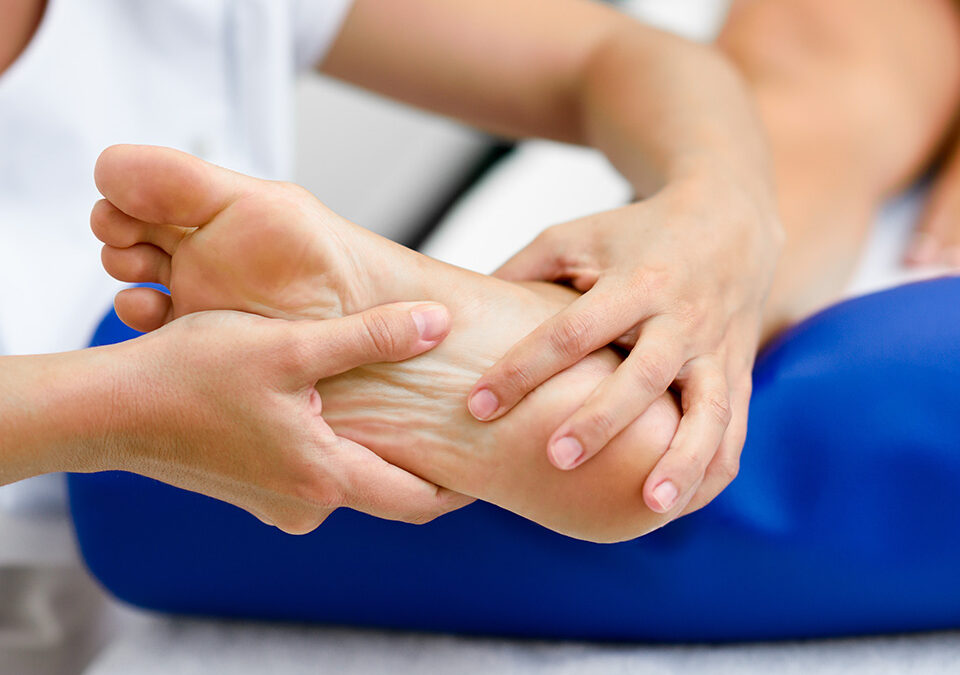
Can Diabetes Cause Hair Loss?
May 21, 2021
Diabetes And Excessive Sweating: What Is The Connection?
May 21, 2021Diabetes is one of the few chronic diseases that, if left undiagnosed, may cause serious repercussions in the body. If your blood sugar levels remain high for a prolonged time, it may cause diabetic neuropathy. When affected by diabetic neuropathy, the nerve tissues get damaged and you may experience extreme levels of pain in your arms and legs, called diabetic nerve pain. Even the slightest touch in the affected area may give you tingling pain. Therefore, it is very important to look out for the symptoms of diabetic nerve pain if you have been diagnosed with diabetes.
Symptoms Leading To Diabetic Nerve Pain:
- Sensitivity to the slightest touch
- Difficulty while walking
- Numbness and mild pain in arms and legs
- Excessive sweating
- Weakness in the body
Some lifestyle changes and easy-to-follow tips may, however, ease out this unbearable pain for you and may give you both short-term and long-term relief.
Tips To Relieve And Control Diabetic Nerve Pain

Control Your Blood Sugar Levels:
High blood sugar is the primary reason for the onset of diabetic nerve pain. Controlling blood glucose levels can go a long way in controlling diabetes and relieving you from the pain. Monitor your blood sugar level routinely. Keep your doctor informed about all ups and downs and take the prescribed medicines sincerely. If you have been prescribed insulin, take it with due diligence. Management of diabetes is the key to long-term relief in diabetic nerve pain.
Look Out for Symptoms:
Most people seem to miss out on the mild ache in the initial stage. Don’t let it spread to your arms and legs and become unbearable. Early treatment is always better.
Get Your Vitamins Levels Checked:
Vitamin D and Vitamin B are the two most important nutrients in this case. The deficiency of these nutrients may also cause diabetic nerve pain. Get your vitamins levels checked as soon as you experience any of the symptoms. In case of any deficiency, consult your doctor and take the required supplements.
Eat a Healthy Diet:
A healthy diet is the key to controlling diabetes. Diet is probably the most important component in diabetes management after medications. Eat a healthy diet and keep taking meals in short intervals of time. Include loads of fruits, vegetables and whole grains in your diet. You may also include nuts and a moderate quantity of fish and poultry in your meals. Try to avoid excess carbohydrates and sugars as much as possible. This will help you maintain your sugar levels and prevent further nerve damage.
Control Your Weight:
Excess weight and obesity are the leading causes of high blood sugar levels and diabetes. By maintaining your body weight, you may avoid further damage to the nerves. Exercise regularly and regulate your dietary intake to remain healthy and manage your weight.
Exercise Regularly:
There are many ways in which exercising helps you combat diabetic nerve pain. Regular exercising can help you control your blood sugar levels, which in turn will avoid any further nerve damage. Movement and exercises boost the blood circulation in the body; as the blood reaches your arms and legs, it relieves your body from the pain. Exercising can relieve you from stress and anxiety that are caused due to pain and discomfort.
Take Good Care Of Your Feet:
Diabetic nerve pain for a prolonged time may make you lose sensation in your feet. Keep looking out for cuts and blisters in your feet regularly to avoid infections and ulcers. Remember to always wear comfortable shoes to avoid any more discomfort to the feet.
Avoid Drinking And Quit Smoking:
Alcohol is toxic to nerves and can trigger diabetic nerve pain. It is also rich in calories, so it might fluctuate your blood sugar levels. Therefore, you must avoid drinking as much as you can. When it comes to smoking, it is probably most hazardous to diabetes patients. It hampers the flow of blood in the body which may lead to more pain in your arms and legs. You must quit smoking if you are already experiencing symptoms of diabetic nerve pain.
Take A Warm Bath:
For instant relief from diabetic nerve pain, take a warm bath. Warm baths are most effective for two reasons. First, it is soothing to the body and relieves you from stress as well. Second, it increases the flow of blood in your body, which in turn relieves you from the unbearable ache.
Meditate To Manage Anxiety and Depression:
Anxiety and depression are more likely to develop if you experience an extreme level of pain and discomfort all the time. They in turn may make your pain worse. This creates a loop of pain and suffering. Meditation is the best way to relieve yourself from anxiety and depression and ultimately from diabetic nerve pain.
Reference Links:
- https://pubmed.ncbi.nlm.nih.gov/27746370/
- https://www.ncbi.nlm.nih.gov/pmc/articles/PMC3100130/
- https://www.webmd.com/diabetes/features/peripheral-neuropathy-and-diabetes
- https://www.medicalnewstoday.com/articles/317923
- https://www.webmd.com/pain-management/nerve-pain-self-care
- https://www.healthline.com/health/type-2-diabetes/diabetic-neuropathy#symptoms
- https://www.healthline.com/health/tips-treating-diabetic-nerve-pain
- https://www.diabetes.org/diabetes/complications/neuropathy/steps-prevent-or-delay-nerve-damage
- https://www.healthline.com/health/peripheral-neuropathy-natural-treatments
- https://www.medicalnewstoday.com/articles/325157#overview
- https://www.webmd.com/diabetes/guide/peripheral-neuropathy-treating-nerve-pain




